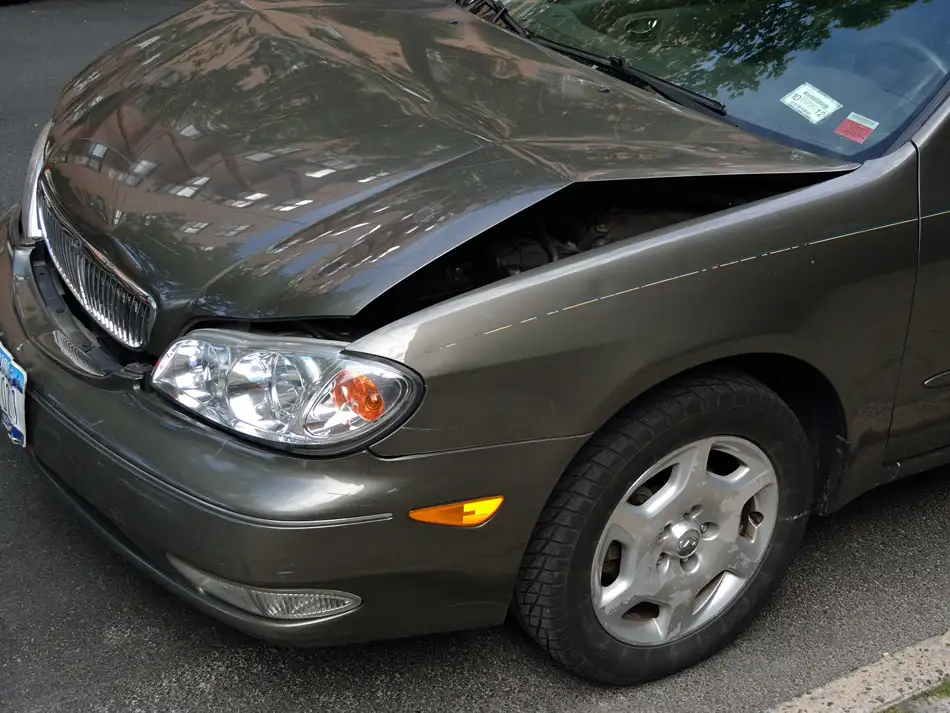
A guide to help you understand the Florida personal injury settlement process so you know what to expect
Regardless of whether you’ve been injured in a car, motorcycle or boat accident in Miami, you likely have mounting medical bills, property damage and loss of income due to missed work. If your accident was caused by someone else’s negligence, Redondo Law can help you file a personal injury claim to seek compensation for your damages.
But how long does a personal injury lawsuit take?
While it’s difficult to provide a definite time frame for any personal injury claim, as each case is unique, personal injury cases do follow a similar process, which we will explain below.
What are the stages of an injury claim?
1. Evidence gathering and injury documentation
The process to file a personal injury claim begins immediately after your accident. If it’s possible and safe to do so, gathering and documenting evidence of the accident should be the first step you take. This will help your attorney prove the at-fault party’s liability and assist in proving your claim.
You should take photos or videos of any injuries or damage and the area in which the accident occurred. You should also collect the contact information of any witnesses who may have witnessed the accident occur. These are key components of any personal injury claim, and without them, securing compensation is less likely.
Your next step after leaving the accident scene should be to seek immediate medical attention. You should do this even if you initially don’t feel injured, as some injuries like internal injuries and brain injuries may not be evident for hours or days after an accident. Seeking a prompt medical diagnosis and treatment will ensure that you have documentation linking your injuries directly to the accident.
2. Attorney consultation
After being injured in an accident, medical bills and lost income from missing work may leave you in a dire financial situation. Insurance companies know this and will try to use it to their advantage, pressuring you to accept the first settlement offer, which may be well below what you’re actually entitled to.
Because of this, you should contact an experienced personal injury attorney to help you seek compensation as soon as possible.
In Florida, you generally have 2 years to file a personal injury claim under what is known as the statute of limitations. However, it’s important not to wait to consult an attorney, as the longer you wait, the more difficult it is to properly investigate and prosecute your claim.
Do I need a personal injury attorney for a minor car accident?
Learn when an attorney is and isn’t necessary after a minor car accident in Florida.
3. Investigation
Once you hire a qualified personal injury attorney, they will begin to investigate your claim by gathering evidence and interviewing any witnesses to help determine the facts of the case and support your claim. Your medical bills, records, work history, and earnings will aid your attorney in calculating the value of your claim.
Depending on the circumstances of your case, your attorney may also seek the aid of medical experts, accident reconstruction specialists, and other expert witnesses to substantiate your claim. The investigation process may take anywhere from a few weeks to a few months to complete.
4. Demand letter and negotiation
Once your attorney has completed the investigation into your accident and calculated what damages you may have incurred, such as medical bills and lost pay, they will typically send a demand letter to the insurer requesting payment. This letter will include details of your accident as well as information and evidence discovered during the investigation to support your claim for liability and damages.
The insurer may then reject, negotiate or accept the letter of demand. If the insurer accepts, they will pay the requested compensation, and your attorney will work to expeditiously bring your case to a close.
In most cases, however, the insurer or defendant will attempt to negotiate. These negotiations allow the case to be negotiated outside of court until an acceptable settlement offer is reached. If no acceptable settlement is reached, you then have the option to file a personal injury lawsuit.
5. Discovery and mediation
Arriving at trial can be a lengthy process, typically lasting months or even years. Before getting to trial, your case will begin with the discovery phase, where both sides will be required to share evidence and witnesses they plan to present during the trial. Often, after this stage is completed, the case will go to mediation.
During mediation, a neutral third party, known as the mediator, acts as a sort of referee while both sides present their case in a confidential setting. Mediation is non-binding, and at any point, either side may refuse to continue or accept the outcome.
A guide to Florida economic damages in personal injury claims
Learn about your right to economic damages—those that compensate you for your direct financial losses and expenses related to the accident, both in the past and the future.
6. Trial
If a settlement isn’t reached during mediation, both parties will prepare for trial. This involves gathering witnesses, preparing statements, and creating visual aids for the jury. During the trial, both sides will present their evidence and witnesses, and a jury will decide how much, if any, compensation should be awarded.
7. Judgment and appeals
Once the judgment is given, the losing party may opt to file an appeal. If no appeal is filed or if the judgment is upheld on appeal, the case moves to the final stage of enforcement.
8. Settlement
Once a settlement has been agreed to or awarded by a jury, the insurer will send a check for that amount to your attorney, who will deduct the applicable attorney’s fees and costs, resolve any outstanding medical bills or other liens, and disburse the remaining funds to you, the client. The case is closed once the settlement or court-ordered payments have been made.
FAQs
How long do most personal injury claims take?
Broadly speaking, a personal injury claim can take anywhere from a few months to several years. A quick settlement could be resolved within a few months, while a full civil trial with appeals could take several years.
Some factors that influence the amount of time it takes to settle a case include:
- Severity of injuries. Cases involving minor injuries typically resolve more quickly, often within a few months. Complex cases with severe or catastrophic injuries can take years to reach a conclusion.
- Clarity of liability. If it’s clear who is at fault, cases may settle quicker. Disputed liability can lengthen the time considerably.
- Willingness to settle. Some defendants or insurance companies are more willing to settle than others. Those who are not can delay the process. Your willingness to negotiate and accept a settlement to resolve the case more quickly is also a factor.
- Complexity of the case. Complex cases involving multiple parties, experts and extensive discovery tend to take longer.
- Legal processes. Delays in court scheduling can extend the time frame. Additionally, if either party appeals a court decision, this can add years to the case.
Who pays for compensation claims?
With personal injury claims, financial responsibility generally falls on either insurance companies or the parties that are found to be at fault for causing the injury. In many cases, particularly those involving vehicle accidents, insurance companies play a major role.
If you’ve been in an accident and the other driver is at fault, their auto insurance will most likely cover your medical expenses, property damage, and other related costs. Even in situations where you may be partially at fault, insurance companies often have a system to apportion costs between both parties’ insurance.
In scenarios where you’ve been injured within a business premise, such as a store, or by a defective product, the business itself could be held financially accountable. Usually, these establishments have liability insurance that can cover your medical bills and any other related damages. Product manufacturers also typically carry insurance for situations where their products might cause harm.
There are also instances where the person responsible for causing the injury doesn’t have adequate insurance coverage to fully compensate you. In these cases, the at-fault party may be personally responsible for covering your expenses. This could mean paying out of pocket or through assets they own, depending on the judgment rendered in a court of law.
The ins and outs of non-economic damages in Florida personal injury claims
Learn when you may be entitled to compensation for non-economic damages like emotional distress or pain and suffering.
At what point do most cases settle?
Most personal injury cases settle during the pre-trial stage, often after the discovery process but before going to trial.
The discovery phase, where both sides gather evidence and take depositions, allows each party to fully understand the strengths and weaknesses of their case. This often incentivizes a negotiated settlement to avoid the unpredictability, stress and expenses associated with a full-blown trial.
Settlements can also occur even earlier, sometimes shortly after the injury occurs and a claim is made with the insurance company. Early settlements are more likely when liability is clear, damages are easy to quantify, and the at-fault party is eager to resolve the matter quickly.
What percentage of personal injury cases go to trial in Florida?
According to the Bureau of Justice Statistics, as few as 2% of personal injury cases actually go to trial in the United States. This figure suggests that the vast majority of these cases are settled out of court.
While the 2% statistic is a national figure, it’s reasonable to assume that the situation in Florida would likely reflect this trend. That means that in Florida, like elsewhere in the U.S., most personal injury cases are likely resolved through negotiations rather than going to trial.
What percentage does a lawyer get in a settlement case in Florida?
In Florida, the percentage that a lawyer receives from a personal injury settlement can vary based on several factors, including the complexity of the case and the point at which the case is resolved.
However, contingency fees are often used in personal injury cases, meaning the lawyer is only paid if they successfully help their client win a settlement or judgment.
The Florida Bar provides guidelines for contingency fee arrangements as follows:
- 33 1/3% of any recovery up to $1 million if the case is settled before filing a lawsuit or before the defendant answers the lawsuit.
- 40% if the case goes to trial.
Additional fees might apply if your case goes to an appeals court or if you’re awarded more than $1 million. But keep in mind that securing a settlement with the help of a lawyer often results in a substantially higher payout compared to going it alone.
Redondo Law is here to help with your Miami personal injury claim
If you’ve been injured in an accident, the last thing you need to worry about is fighting an insurance company. The claims process can be complex, and insurers will use this to their advantage.
Mike Redondo and the team at Redondo Law can help you even the playing field with their experience and knowledge from years of helping others pursue compensation for personal injury claims. Redondo Law will fight to protect your rights and help you pursue the compensation you deserve.
Schedule your free consultation using the form below, or visit our Accident Guide for more information.
References
Bureau of Justice Statistics (BJS) – Tort, contract and real property trials. (n.d.). Www.bjs.gov. Retrieved September 29, 2023, from https://www.bjs.gov/index.cfm/dataonline/index.cfm?ty=tp&tid=451
Consumer Pamphlet: Attorneys’ Fees – The Florida Bar. (n.d.). https://www.floridabar.org/public/consumer/pamphlet003/




